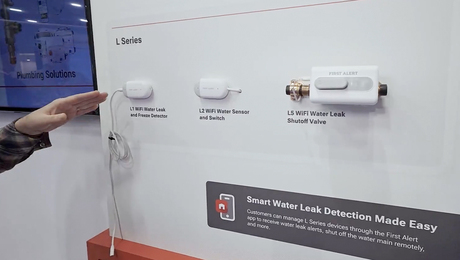As alternative-energy sources go, solar power has gained enough stature to become a significant player in discussions about how the U.S. can wean off coal and other fossil-fuel technologies. Nuclear power, too, has found its way back into consideration as an option, even though the cost of building nuclear power plants to contemporary standards – and with taxpayers covering liability – has elicited more than a few gulps and gasps.
A solar advocacy group in North Carolina, the NC Waste Awareness & Reduction Network (NC WARN), recently commissioned an analysis of the feasibility of nuclear power versus large-scale deployment of solar. The authors of the report – John Blackburn, former chancellor of Duke University and emeritus chair of its economics department, and Sam Cunningham, a master’s candidate at Duke’s Nicholas School for the Environment – say that even given solar cells’ currently modest sunlight-to-electricity conversion efficiencies (about 20%), solar electricity has become cheaper than power would be from new nuclear plants.
Leaning on plant costs
As a July 8 NC WARN press release noted, Blackburn previously had reported that “even modest increases in efficiency and clean energy sources, when used in combination, will avoid the need for new nuclear plants. That approach will even allow the phase-out of the state’s coal power plants – which climatologists say must happen within 20 years.”
Blackburn says gradually decreasing costs for solar installations and relatively steep increases in construction and safety costs for new nuclear power plants have propelled the technologies’ costs per kilowatt into an “historic crossover,” with solar’s economic feasibility ascending while nuclear energy’s declines. The sticking point now is resistance from North Carolina’s utility companies, which, he says, have impeded solar power development in favor of nuclear plants.
There are more than 100 separate electric utilities in North Carolina, which, Blackburn’s report says, is behind at least 20 states in developing clean energy. States that have open competition for electricity sales, the report adds, have rejected nuclear power in favor of various combinations of solar farms, domestic installations, wind and cogeneration technologies, and energy efficiency measures.
As energy efficiency specialist Adam Cohen pointed out in a recent blog post on the subject, Blackburn’s report doesn’t introduce a factor that would further support his findings: recent research that is expected to lead to significant improvements in the efficiency of commercially available solar cells, including multijunction cell technology and a proposed system for converting both waste heat and photons into electricity that would boost efficiency to more than 50%.
Solar’s political juice in Florida
Advocacy for solar power also has found its way into the gubernatorial race in Florida. One of the underdog candidates in that contest, Lawton “Bud” Chiles III, son of the late Lawton Chiles, a former Florida senator and governor, has made renewable energy initiatives part of his campaign platform.
“People are now figuring out that Florida is not going back to the ’50s or ’60s and the three-legged economy” reliant on home construction, tourism, and agriculture, he told the Sunshine State News, a news site that tracks the state’s political and business scenes. “We must have jobs for the future.”
Those jobs, he said, will be tied to the increased use of solar power, biomass, and wind energy technologies, which in turn will help the construction and agricultural sectors emerge from the economic downturn.
Chiles also has called for the state to honor rebates for Floridians who install solar power in their homes, claiming that the state owes some 15,000 Floridians a total of $52.7 million in related rebates. Chiles faces an uphill battle for the governor’s office, and he has been asked to drop out of the race rather than steal votes from front runners. But like many politicians running political campaigns, he may simply be preparing for future runs – and publicizing his advocacy of renewable-energy technologies in the process.
Fine Homebuilding Recommended Products
Fine Homebuilding receives a commission for items purchased through links on this site, including Amazon Associates and other affiliate advertising programs.

Reliable Crimp Connectors

Affordable IR Camera

Handy Heat Gun


























